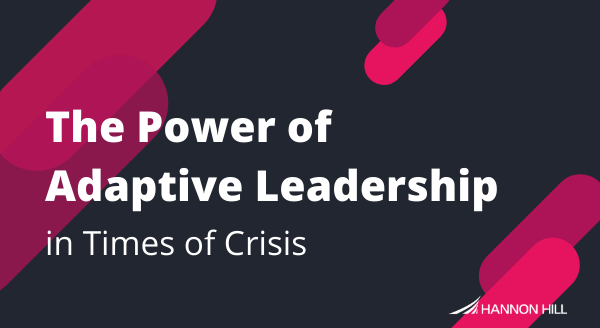
Adaptive Leadership is the act of mobilizing a group of individuals to handle difficult challenges—and emerging triumphant in the end. Introduced by Ronald Heifetz in his 1998 book Leadership Without Easy Answers, it is a practical framework to take on the meaningful process of change.
According to Heifetz, when leaders don’t deliver solutions in times of crisis, we add their failure to our list of woes. But, in doing so, we are actually doing ourselves a great disservice. We need a new social contract between leaders and their teams, one in which managers and employees work together to accomplish goals.
“The idea of one heroic individual single-handedly generating results is outdated. Leadership is now considered a team sport” - Corporate Finance Institute
Finally, a key component of adaptive leadership is the distinction between leadership and authority. Leadership does not require a manager distinction. It can be enacted by anyone at any time.
Adaptive leadership recognizes two types of challenges: technical and adaptive.
Technical problems occupy people in positions of authority on a regular basis. They are mechanical and can be solved using existing know-how and studied problem-solving techniques.
With adaptive problems, however, there are no trained experts to deal with the issue at hand. And no set of rules or procedures exist. In this scenario, a good leader will summon co-workers to come up with a solution.
Adaptive leadership is purposeful evolution in real time, sometimes in tough circumstances. It will force you to interrupt—and sometimes reject—the status quo in favor of new methodologies. Shifting attitudes and perceptions, as well as counteracting reluctant behavior, will likely be required.
Furthermore, working through suggestions from individuals who disagree with you requires emotional intelligence and organizational justice. According to Travis Bradberry for Forbes, “Great leaders don’t shy away from the truth. They know how to integrate what people think, what they want to hear, and how they want to hear it with the facts. This makes people feel valued and respected.”
Finally, adaptive leaders are open to risk taking and experimentation. They also foster innovation among employees.
The Importance of Emotional Intelligence highlights the four competencies of emotional intelligence: self-awareness, self-management, social awareness, and relationship management. These skills are required to succeed in positions of authority.
Additionally, adaptive leaders make fair decisions, share information, maintain integrity, develop others, and are lifelong learners.
“Level 5 Leaders blend extreme personal humility with intense professional will.” - Jim Collins for Harvard Business Review
It’s also important to, again, listen to the diversity of viewpoints and find value in differences of opinion. Maintain confidence, but don’t overestimate your own abilities.
Observe. One of the most frequently cited metaphors from Heifetz's work is the concept of going to the balcony. Adaptive leaders gain objectivity and perspective by going to the balcony to observe the dance floor below. Successful leaders see the patterns, nuances, and intricacies of what was going on around them.
Interpret. Another important lesson is giving work back to the groups and organizations we seek to lead. Focus on full participation from community members to devise responses to complex issues. Come up with multiple hypotheses about what is really going on. For higher education, this burden extends to the student population as well.
Design. Experiment with new processes, programs, and activities. Give it time. Evaluate results, learn, and optimize.
Problems that experts cannot solve are called adaptive challenges. They require experiments, discoveries, and adjustments in your organization. To make the adaptive leap, people need to adopt new values and attitudes, and internalize the change itself.
Adaptive leaders guide with empathy, learn through reflection, embrace change, and create situations in which the most people win.
In times of crisis, adaptive leadership can help authority figures see the bigger picture and delegate meaningful work back to people and teams.
Last Updated: Jul 2, 2020 11:00 AM